Best Foods for Postpartum Recovery (40+ Recipes)
- December 15, 2023
- Last Updated: December 20, 2024
- 0 Comments
- Pregnancy & Postpartum
If you’ve just had a baby, you’re probably starting to think about how to recover from birth as well as how to take care of yourself AND your newborn. Here is a list of the best foods for postpartum recovery and how you can incorporate them into your diet (and why you want to!)
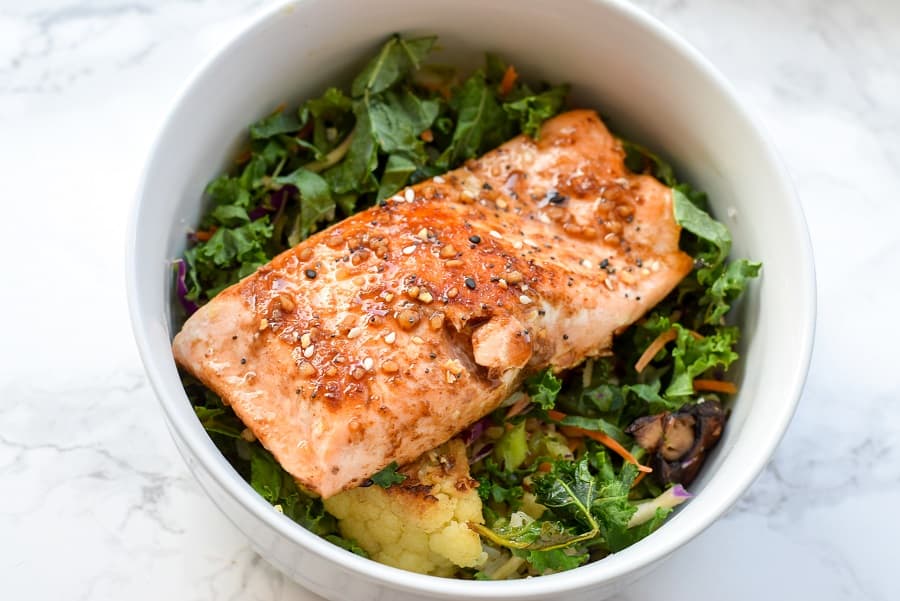
As an Amazon Associate, I may earn from qualifying purchases. You can read more here about our Disclaimer and Privacy Page.
As a new mom, not only are you learning to care for your precious baby, but your body is recovering from childbirth and needs a little extra attention.
So in between learning which cry means what, and how your baby likes to be held, burped, etc., you’ll want to prioritize your postpartum recovery, your pelvic floor and so much more!
If you want to work on strengthening your pelvic floor during pregnancy or postpartum, I highly recommend this free course from MUTU! The free videos and information offers a great way to see where you are and what needs to be strengthened for better movement, mobility and more. I’ve personally gone through MUTU and it was life changing!
Of course, getting enough rest and enlisting help when you can will speed up your healing and recuperation.
Help from people and products – a postpartum recovery kit is so worth it in my opinion!
However, what you eat during the period after giving birth matters.
And, it’s not just what to eat after delivery; it goes much deeper than that into habits and consistency, finding the best meals as a postpartum mom.
Healthy foods for breastfeeding moms are paramount!
You want to eat plenty of foods to help postpartum recovery. Certain nutrients are essential for optimal postpartum recovery.
Whether you have a c-section incision that needs healing, or you’re breastfeeding and trying to keep up your supply, choosing proper, nutrient-dense lactogenic foods or recovery foods can meet your high needs for nutrition.
Let’s discuss postpartum recovery and why you should eat certain nutrients.
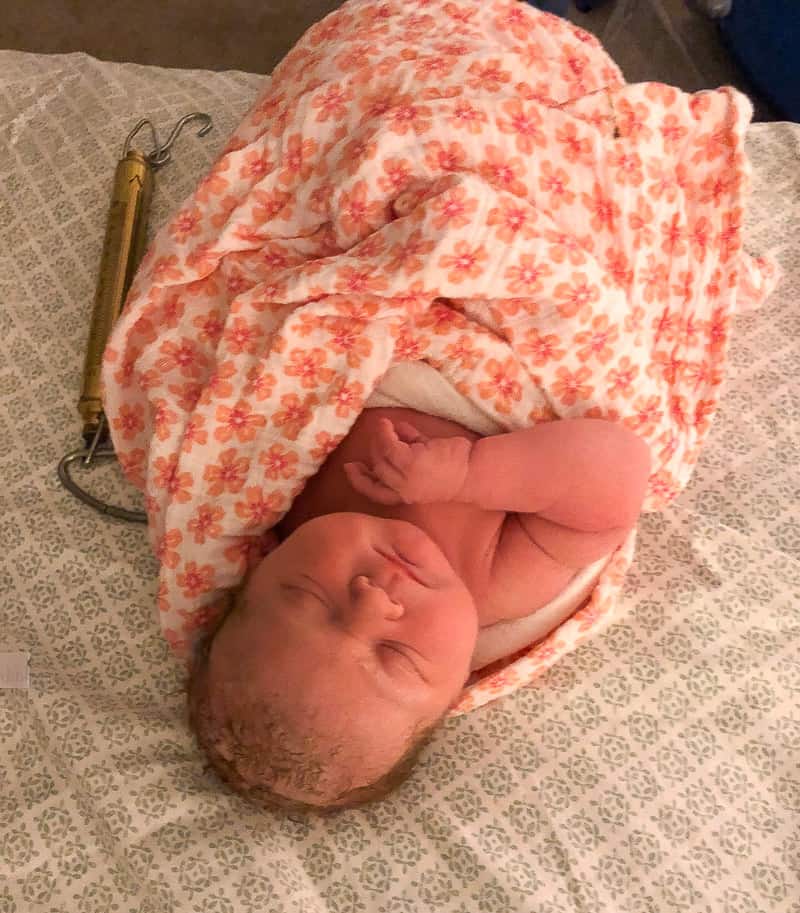
Plus, I’m sharing a list of the best foods for postpartum recovery that I’m focusing on at 4 months postpartum and best meals for postpartum moms as your body adjusts to your new normal.
What is Postpartum Recovery?
To support your pregnancy, your body ramped up hormone production. These hormones helped to signal your body to make changes in most of the systems in your body.
For good reason—you needed increased blood supply and heart output, better vitamin and mineral absorption, stronger pelvic floor muscle strength, and more!
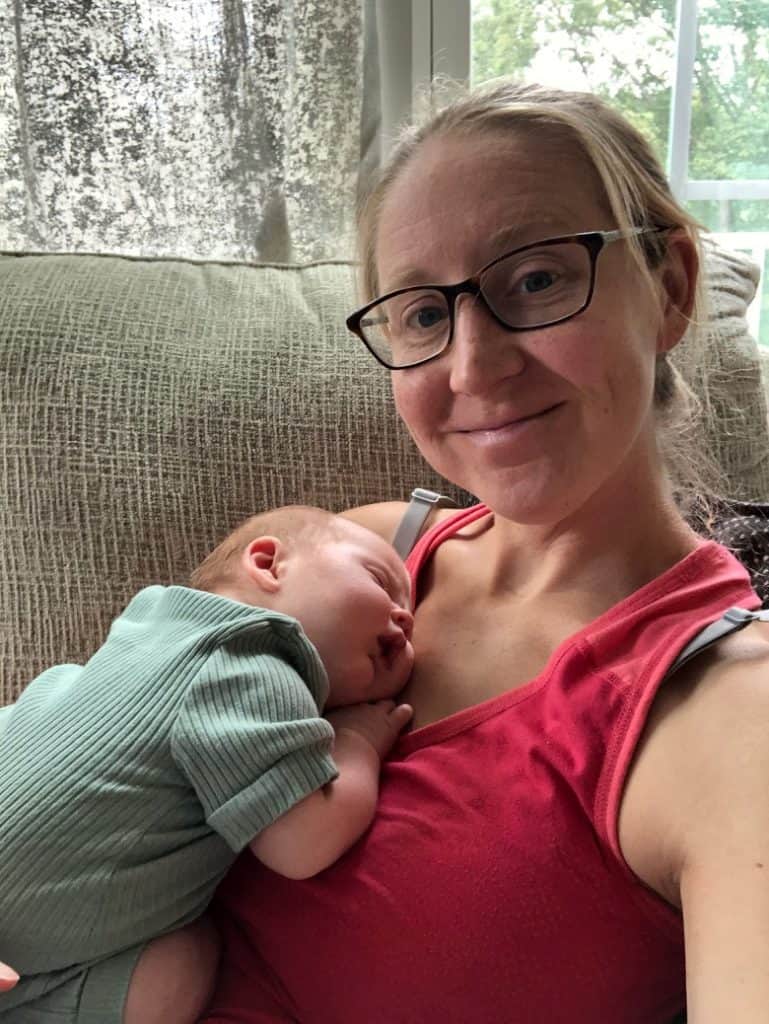
And then, as soon as you deliver your baby, your body’s hormones make quite a large shift, again. And it happens quickly.
The cascade of hormonal changes after birth is quite amazing. I remember writing about this in my 3 month postpartum update.
The same hormones that are supporting your pregnancy and making childbirth happen are now helping you bond with your baby.
It’s amazing how it happens right before your eyes.
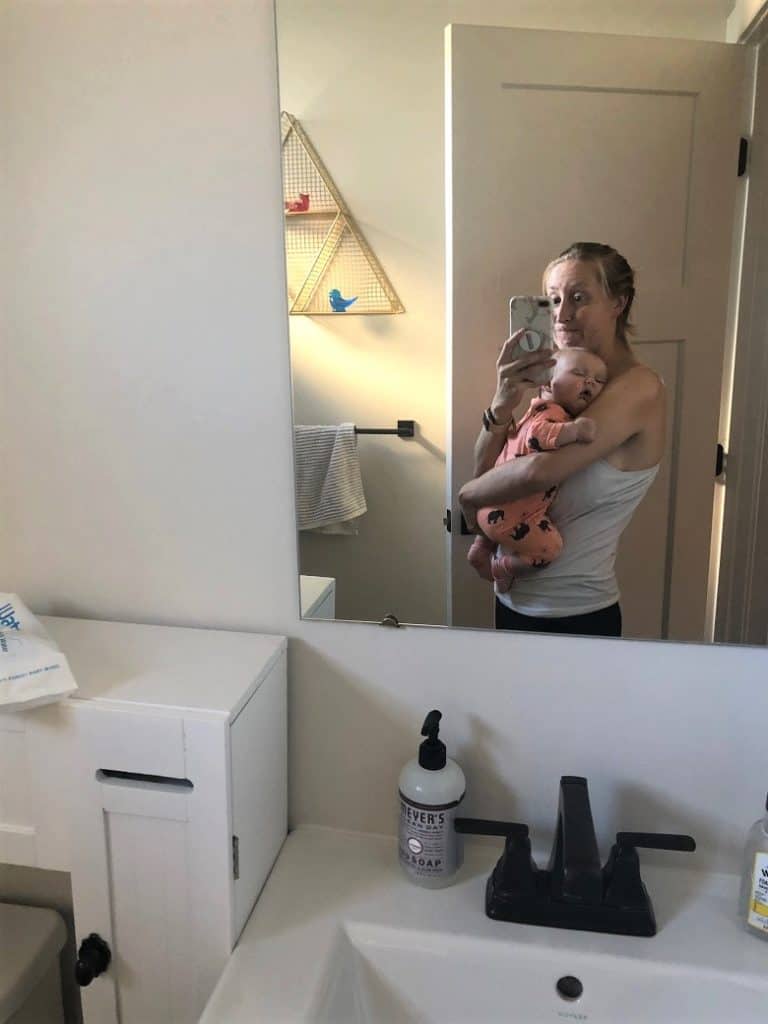
Your brain can’t shut off, you have this innate motherly sense, and your life is now consumed by a little, teeny tiny human.
Here are some other things happening postpartum:
- There are are hormones facilitating milk production, if you choose to/are able to breastfeed.
- Your uterus is shrinking back to its normal size and your body is tapping into the stored fat so you can feed your baby.
- If you had a c-section, you’re recuperating from major surgery and have an incision to keep clean.
- To top it off, you have a baby that you have to keep alive and you’re sleep-deprived. There’s also a good chance you have other kids, and you’re learning to juggle their needs (like when I went from 2 to 3 kids)
No wonder you feel like a mess!
Recovery requires rest and healing. Easy to say, but not always easy to do.
You’ve probably heard the saying, “Sleep when the baby sleeps!”. If this is your first baby, you should take a nap when the baby naps. However, that isn’t always possible when you have more than one child.
It may be beneficial to recruit some help and let your volunteers tidy the house, keep up on laundry, and play with your other children. That way you can rest and focus on the baby AND recovery.
Aside from rest, the best tip I can give you as a Registered Dietitian for better recovery is to include some postpartum recovery foods, and let’s talk about why.
What Postpartum Recovery Foods Help You Heal Faster After Giving Birth?
Knowing the nutrients in foods to eat can help you heal faster. We eat food,which is built on nutrients.
While you don’t necessarily need to think about each nutrient in postpartum recovery foods, it helps to have a baseline understanding as you seek to include more foods with these nutrients into your daily life.
The nutrients in the food you eat (like these postpartum food ideas) can help aid your recovery, improve your health and immunity, and increase your energy levels.
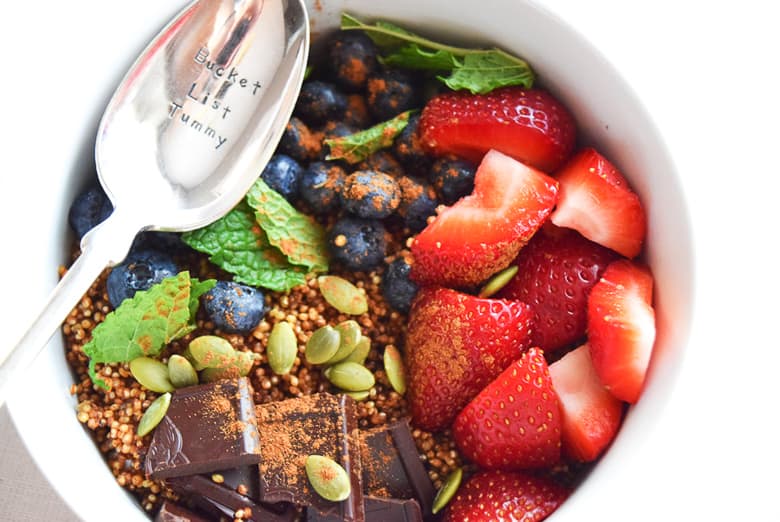
The following nutrients are important in your healing journey:
- Protein: You’ll need protein to help rebuild tissue and heal any incisions or tears. Protein is a major component of breast milk, so your protein needs are greater during lactation. You can get protein in numerous ways—including chicken, eggs, meat, pork, fish, tofu, legumes, milk, cheese, yogurt, and peanut butter.
- Omega-3 fatty acids: Omega-3 fatty acids are needed both in pregnancy and the postpartum period for fetal development, optimal heart health, and brain function. Supplementing omega-3 fatty acids can also reduce the risk of postpartum depression. Omega-3s are found in foods like fatty fish (salmon, sardines, tuna), hemp seeds, chia seeds, and nuts.
- Iron: Iron was important during pregnancy to support the additional blood supply. In postpartum recovery, iron is still required to prevent anemia and boost the iron content of your breastmilk. Iron-rich foods include red meat, chicken, fish, eggs, legumes, spinach, nuts, and fortified cereals.
- Folic acid: This B-vitamin is a major player in neural tissue development during pregnancy, but in the postpartum period, folate helps iron do its job. You can find folic acid in green veggies, meat, and fortified foods.
- Antioxidants: There’s never a time in life when antioxidants aren’t important! When you prioritize eating a variety of fruits and vegetables, you’ll be getting in some powerful antioxidants that will reduce inflammation, improve brain function, and prevent disease. Plus, they’ll transfer to the breastmilk so your baby reaps the benefits as well.
- Calcium: Considering your body just grew a human, it’s going to need some replenishing. One nutrient that needs replacement after birth is calcium. If calcium intake is inadequate during pregnancy, your body will take the mineral from your bones to form the baby’s skeletal system. Dairy and fortified foods are excellent sources of calcium.
- Choline: Choline is a mineral found in eggs, veggies, and meat. It helps your nervous system function properly. An essential prenatal nutrient for the brain development of your baby, choline needs are increased during lactation as well.
- Zinc: Another nutrient that is essential for wound healing and tissue growth, zinc is also important for breast milk. It may also be beneficial in preventing postpartum depression. You can get zinc from red meat and pumpkin seeds.
- Dietary fiber: The postpartum stage can already be uncomfortable. You don’t need to be dealing with constipation. You can promote good digestion by making sure you’re getting enough fiber. Fiber can be found in whole grains, vegetables, fruits, and legumes.
Best Foods for Postpartum Recovery
Now that you know what nutrients are needed for your postpartum healing, let’s talk about how you can practically add them to your diet through these foods for postpartum recovery and the best meals for postpartum moms.
You can prepare ahead with these ideas for freezer meals for moms. I also recommend making some postpartum snack ideas and recipes in bulk so you can just grab them, especially when you’re tired.
I also highly recommend bone broth often for postpartum!
Here are some additional recipes to help you meet your postpartum nutrition needs.
Soups
- Pressure Cooker Pumpkin Sweetpotato Soup
- lnstant Pot Tortellini Soup
- Meatball Kale Soup
- Chicken Pumpkin Chili
- Butternut Squash Chicken Soup
- I also just love combining lentils, broth, spices, onion, carrots and any other veggies for a nutrient-rich lentil soup!
- Including lots of warm and nourishing bone broth (with ample protein) can help speed healing and recovery. Even better, make this bone broth hot chocolate.
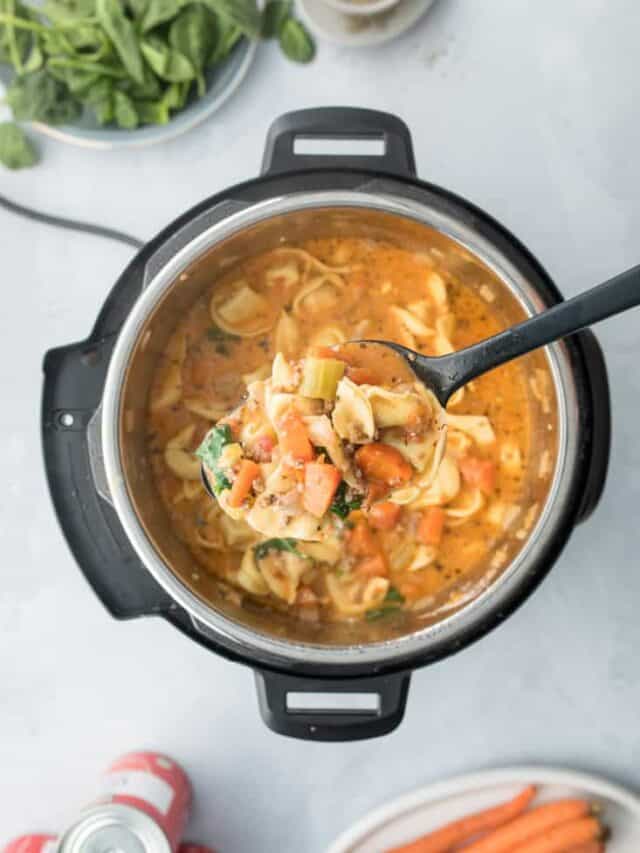
Protein-rich foods
Here are some easy recipe ideas that are high in protein to support your postpartum recovery.
- Lemon Pepper Baked Chicken Tenders
- Chicken Sausage Sheet Pan Dinner
- Butter Chicken Rice Bowl
- Sweetpotato Turkey Burgers
- One Pot Taco Tortellini
- Apple Cottage Cheese Overnight Oats
- Air Fryer Turkey Burgers
- Air Fryer Bison Burgers
- Quinoa Power Bowl
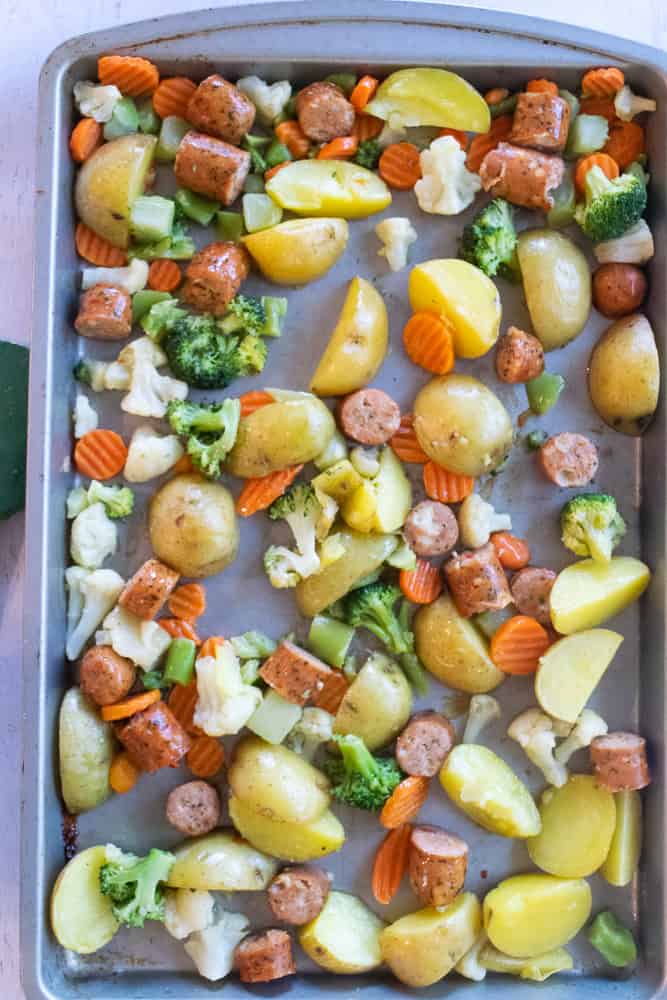
Seafood
Remember those omega 3‘s we discussed? Seafood is the best option for dietary EPA and DHA!
Including canned tuna and canned salmon, or pouches, is another budget-friendly way to get more omega 3‘s.
I also love this easy pregnancy salmon recipe.
- 20 Minute Honey Garlic Shrimp and Broccoli Sheet Pan
- Shrimp Tacos with Watermelon Pineapple Salsa
- Kale and Broccoli Salad with Lemon Garlic Salmon
- Teriyaki Pineapple Salmon Patties
- Zucchini Salmon Fritters
- Sheet Pan Salmon and Veggies
- Gluten Free Fish Sticks with Honey Yogurt Dipping Sauce

Veggies
While veggies aren’t high in necessary calories, they offer a slew of micronutrients, antioxidants, and nutrients important for healing.
In other words, adding color to just about every meal can be beneficial. Here are some easy options.
- Cantaloupe Arugula Salad
- Broccoli Orzo Salad
- Honey Mustard Air Fryer Parsnips
- Vegan Couscous Salad
- Cheesy Sweetpotatoes
- Balsamic Roasted Brussels Sprouts and Carrots
- Mustard Greens and Kale Salad
- Air Fryer Butternut Squash Fries
- Veggie Pasta Bake
- Vegan Sweetpotato Kale Hash
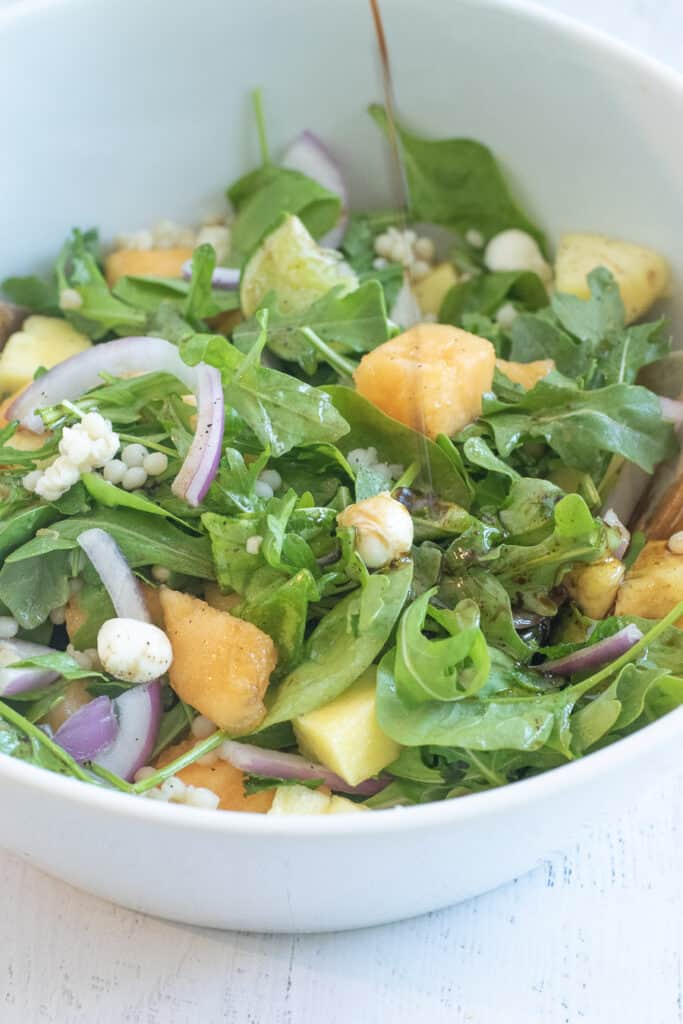
Fiber and Whole Grains
Whole grains, and fiber-rich foods, offer essential B-Vitamins and a load of fiber to help with satiety, constipation, and blood sugar regulation.
Try these ideas!
- Sweetpotato Apple Muffins
- Quinoa Fruit Salad
- Lemon Blueberry Overnight Oats
- Overnight Gingerbread Oatmeal (Crockpot Oatmeal)
- Strawberry Baked Oatmeal
- BBQ Roasted Chickpeas
- Strawberry Chickpea Flour Muffins
- Avocado Bean Dip
- Vegan Cannellini Beans Recipe
- Lemon Garlic Lentil Hummus
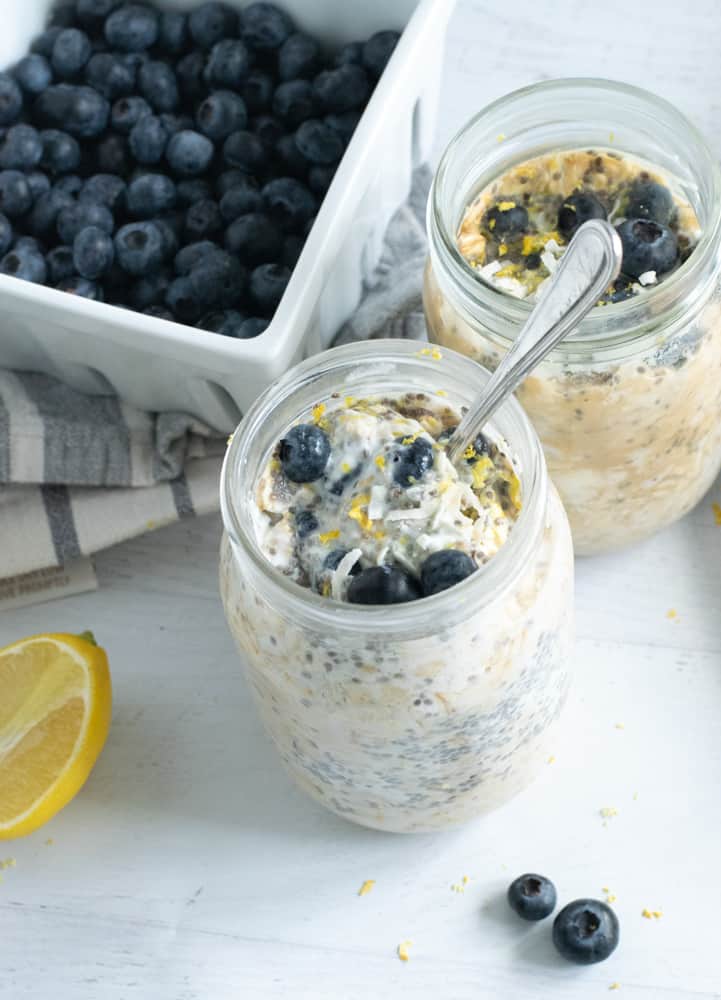
Eggs
Eggs are one of the best nutritional sources of choline, which is important for pregnancy and postpartum. Plus, eggs offer essential nutrients, like iron, B-Vitamins, protein and more.
Here are some easy ways to include eggs postpartum.
- Veggie Sweetpotato Egg Casserole
- Mexican Chorizo Egg Bake
- Asparagus Mushroom Quiche
- Cheesy Turkey Veggie Frittata
- Healthy Breakfast Skillet
- Healthy Turkey Sausage Breakfast Casserole
- Vegetarian Breakfast Pizza
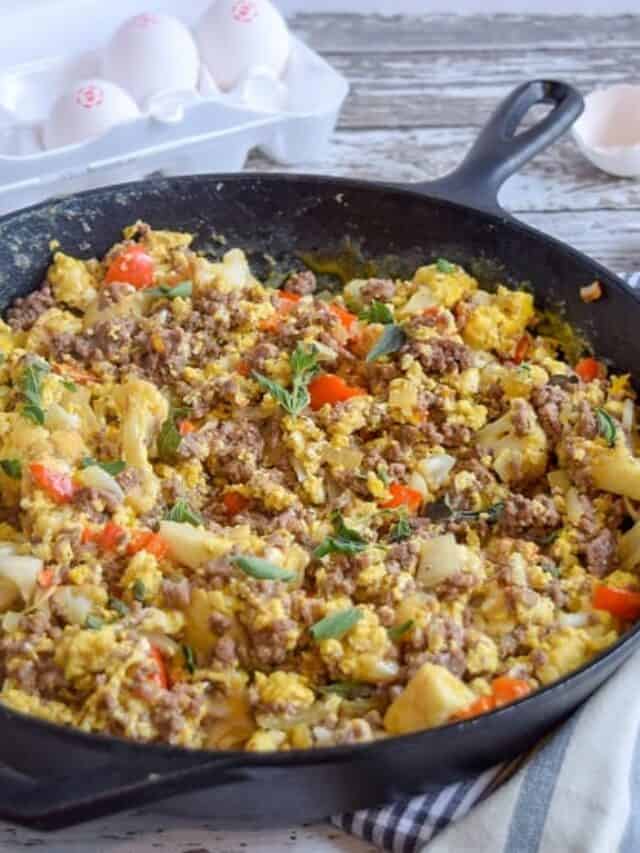
Hydration
While food is an important part of postpartum recovery, your hydration matters, too. Especially if you’re breastfeeding.
Your fluid needs are dependent on your calorie intake, which should be increased if you’re nursing. Because you need that extra fluid to make milk, you need 700-1100 mL more water (23-37 oz) every day.
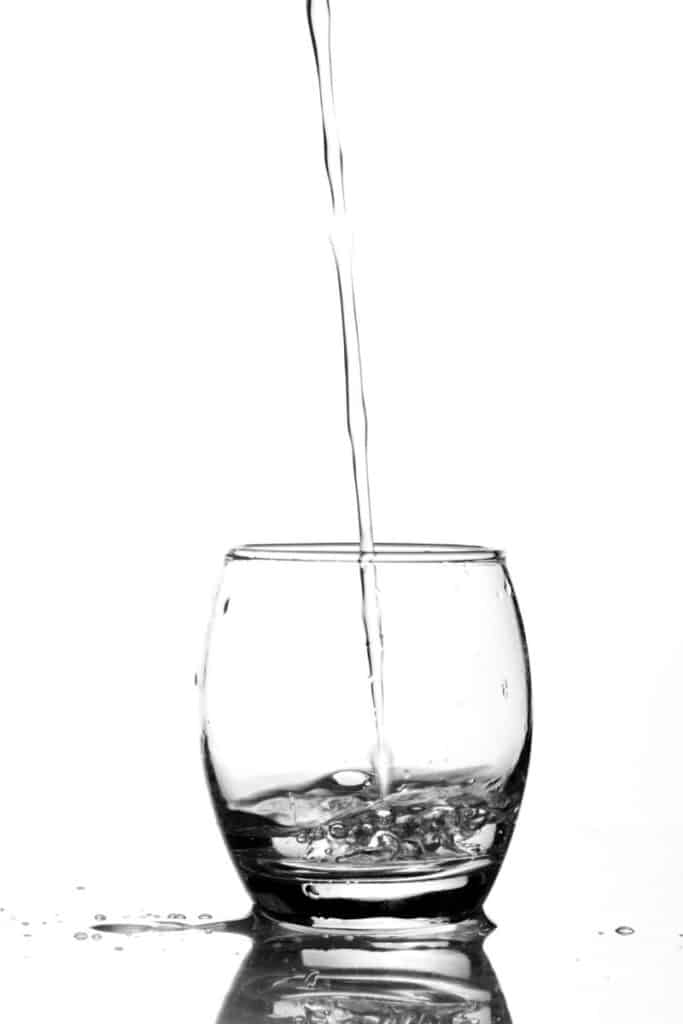
According to the American College of Obstetricians and Gynecologists, you should drink between 8 and 12 cups of water daily during pregnancy. When you add in the increased need for lactation, you’re at around 11-17 cups of water per day.
Your body will tell you. Breastfeeding hunger and thirst are no joke!
It can also be prudent to go ahead and add collagen into your liquid of choice (water, smoothie, juice, etc.).
Collagen is safe during pregnancy and has many benefits, but always discuss this with your healthcare provider.
Collagen while breastfeeding can also be beneficial for many reasons.
It’s not uncommon to get trapped under a sleeping baby and go without your basic needs. You’re hungry or thirsty (or have to pee!) but you can’t move for fear you’ll wake your little one.
Here’s where planning ahead for foods to help postpartum recovery, drinking fluids and establishing habits are key.

You can drink in response to your thirst, or get a water bottle that shows the ounces. Whatever drink container you choose, make sure it goes with you when you sit down with the baby.
Or, keep water bottles in multiple rooms or on a nursing cart.
I made a habit of carrying a water bottle with me. I’d also have ice water (and plenty of breastfeeding snacks) stashed at my favorite nursing spot so I could sip while baby was eating.
An easy way to assess your hydration is by using your urine as a guide. If it’s light yellow, you’re getting enough fluids. Pretty dark…drink up!
In conclusion, life with a newborn can be exhausting, but with a little attention to postpartum nutrition, your recovery can go more quickly and smoothly.
Enjoy those baby snuggles, but take care of yourself, too!
References:
- Kepley JM, Bates K, Mohiuddin SS. Physiology, Maternal Changes. In: StatPearls. Treasure Island (FL): StatPearls Publishing; March 12, 2023.
- Whitley J, Wouk K, Bauer AE, et al. Oxytocin during breastfeeding and maternal mood symptoms. Psychoneuroendocrinology. 2020;113:104581. doi:10.1016/j.psyneuen.2019.104581
- Alex A, Bhandary E, McGuire KP. Anatomy and Physiology of the Breast during Pregnancy and Lactation. Adv Exp Med Biol. 2020;1252:3-7. doi:10.1007/978-3-030-41596-9_1
- Institute of Medicine (US) Committee on Nutritional Status During Pregnancy and Lactation. Nutrition During Lactation. Washington (DC): National Academies Press (US); 1991. 9, Meeting Maternal Nutrient Needs During Lactation. Available from: https://www.ncbi.nlm.nih.gov/books/NBK235579/
- Hsu MC, Tung CY, Chen HE. Omega-3 polyunsaturated fatty acid supplementation in prevention and treatment of maternal depression: Putative mechanism and recommendation. J Affect Disord. 2018;238:47-61. doi:10.1016/j.jad.2018.05.018
- Guideline: Iron Supplementation in Postpartum Women. Geneva: World Health Organization; 2016. BACKGROUND. Available from: https://www.ncbi.nlm.nih.gov/books/NBK379991/
- Centers for Disease Control. 2022. “Breastfeeding and Maternal Diet.” https://www.cdc.gov/breastfeeding/breastfeeding-special-circumstances/diet-and-micronutrients/maternal-diet.html
- Aoki C, Imai K, Owaki T, et al. The Possible Effects of Zinc Supplementation on Postpartum Depression and Anemia. Medicina (Kaunas). 2022;58(6):731. Published 2022 May 29. doi:10.3390/medicina58060731
- Rigaud M, Sevalho Corçao C, Perrier ET, Boesen-Mariani S. Assessing a Tool for Self-Monitoring Hydration Using Urine Color in Pregnant and Breastfeeding Women: A Cross-Sectional, Online Survey. Ann Nutr Metab. 2017;70 Suppl 1:23-29. doi:10.1159/000463000
Support Bucket List Tummy

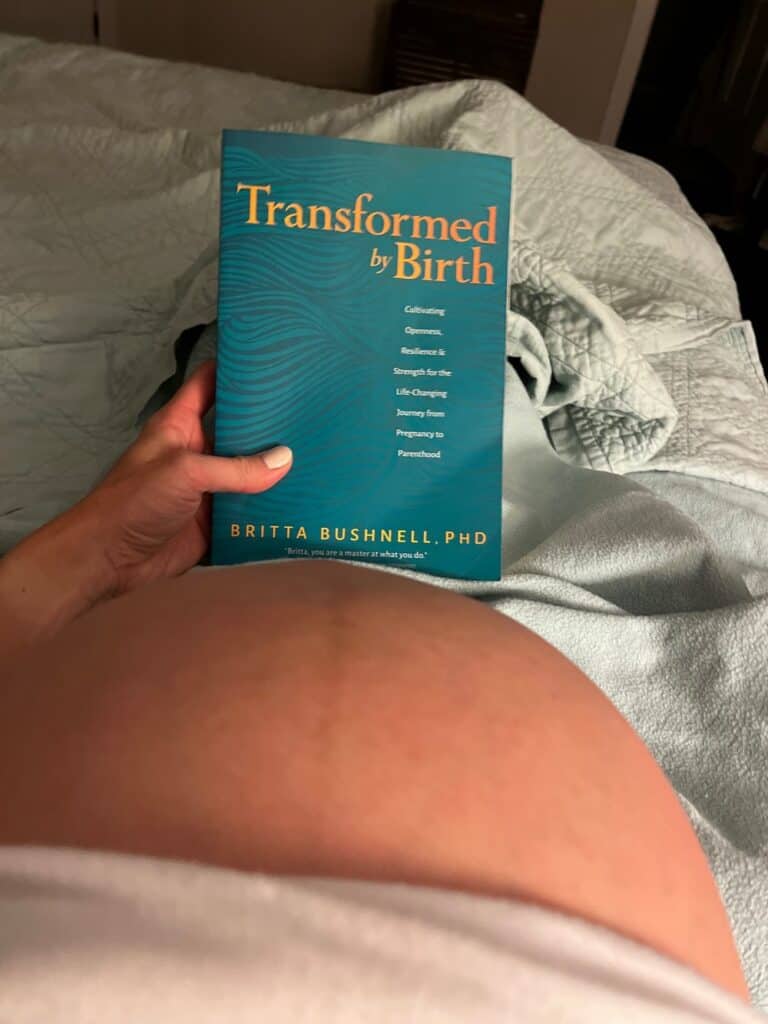


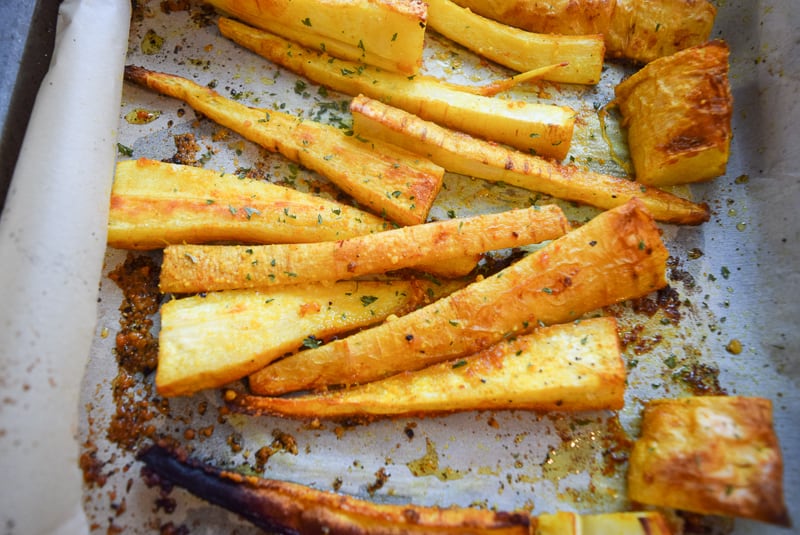
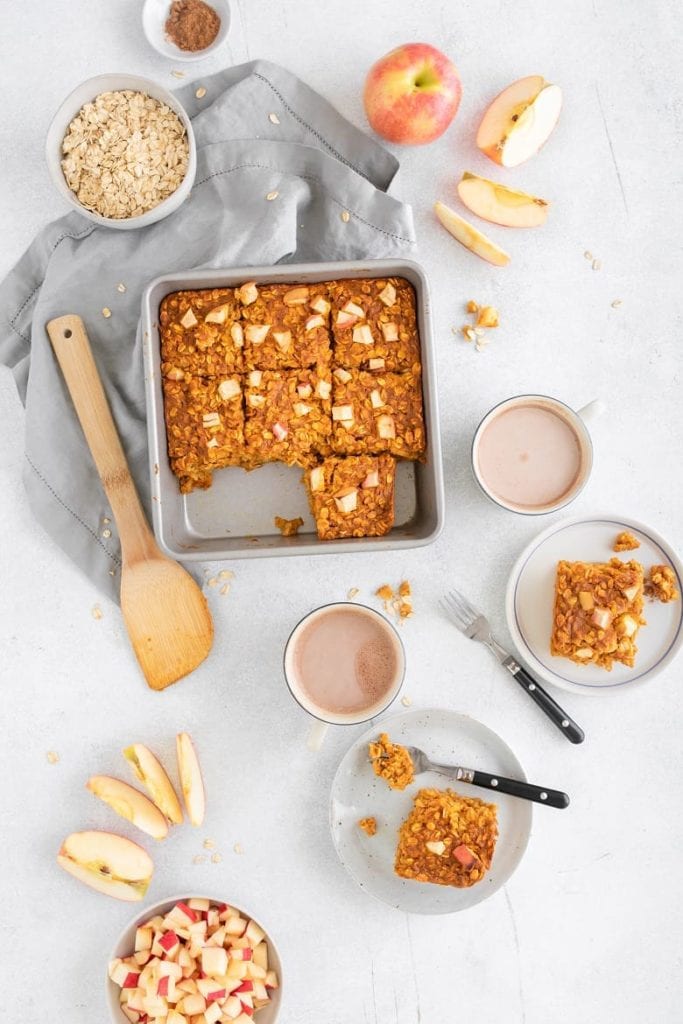


Like This Content?
Support Bucket List Tummy